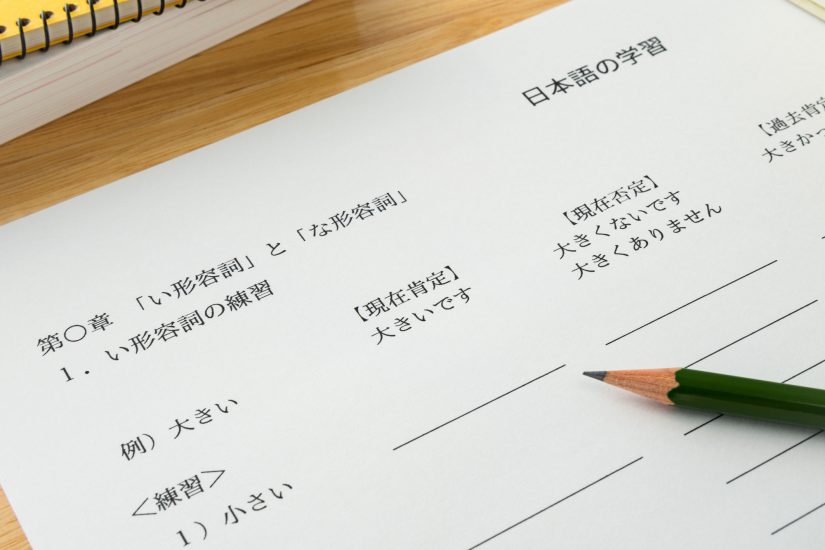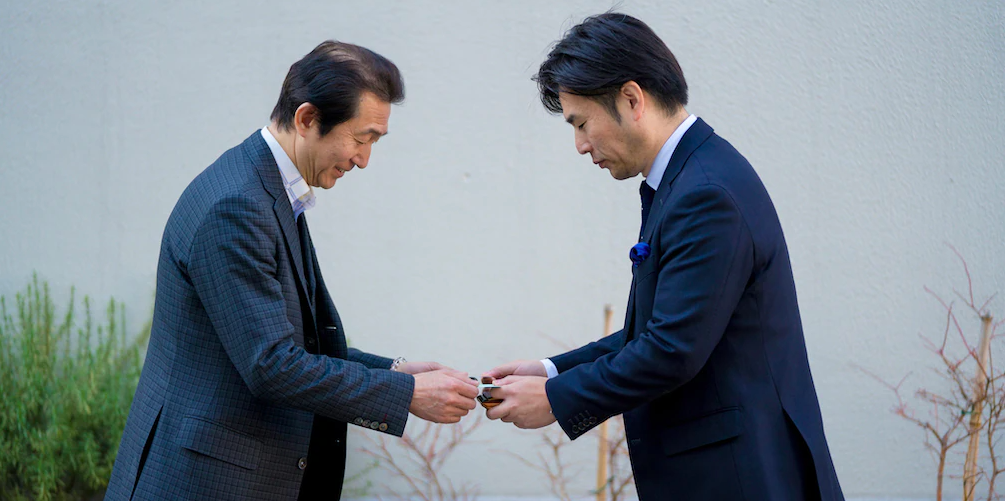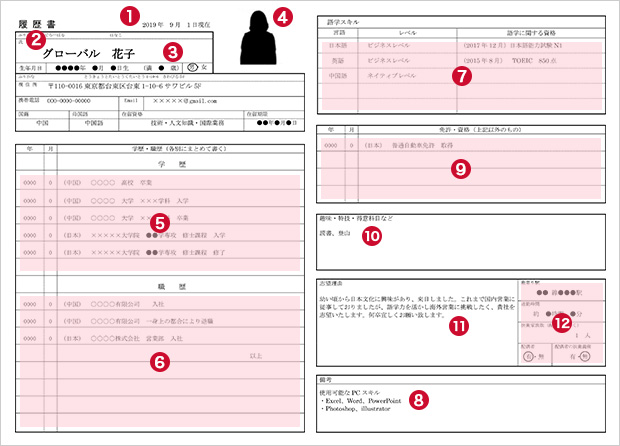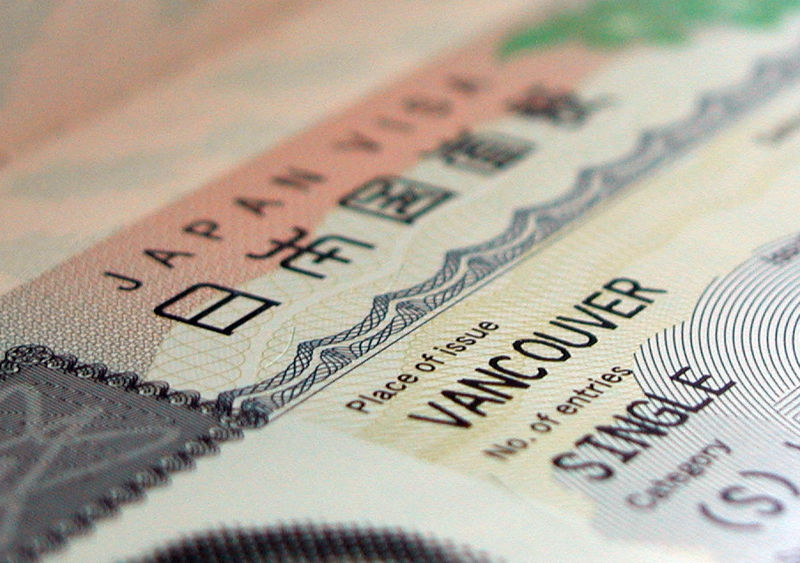Working in Japan
Living in Japan is a dream for many who love the culture, but working in Japan as a foreigner can be a challenge, especially if you can’t speak a lick of the language. But if you really want to kickstart a career in Japan, read on for some basic tips and what to expect as a foreigner working in the country.
For more culture guides, check out:
Things to consider before your job search
1. Your Japanese language proficiency

Image credit: Lee Okuyama
This goes without saying, but most jobs in Japan require you to have a certain level of language proficiency. To gauge your eligibility for the role and language ability, Japanese companies often use the Japanese Language Proficiency Test (JLPT) as a benchmark.
You’ll need to have at least passed the N2 level – the second highest level in the standardised test – in order to be considered for full-time positions that require you to speak the language. The certificate is also an indicator to your potential employers that you are able to communicate in Japanese, and hence assimilate smoothly into the company.

Image credit: Work In Japan Today
Depending on the field you’re in, you may also be required to know specific terminologies and jargons related to the type of job that you are applying for. Needless to say, being able to speak and write the language will not only give you an edge over other candidates, but also open more doors for you.
2. Types of job

Image credit: RODNAE Productions
That said, there are some jobs that don’t require Japanese proficiency. The most popular route is to land an English teaching position, be it through eikaiwa schools (英会話; privately owned English language schools) or the JET Programme, a government sanctioned initiative.
Even foreigners without experience or language proficiency can apply for the positions, and many institutions will even help foreign employees move to Japan. If you’re a native English speaker and hold at least a college degree, being an English instructor is a viable option.
However, don’t expect any career progression – it is fairly common for expats to use the position as a gateway into the Japanese workforce and as a stepping stone to venture into other fields, or return home after they’ve ticked off living in Japan for a few years from their bucket list.
 Image credit: Sigmund
Image credit: Sigmund
If you are moderately fluent in Japanese, translation or interpreting jobs – jobs that utilise your bilingualism – are great places to start. To get into the field, foreigners who aren’t physically in the country typically apply for entry-level in-house translating jobs available in Japan. After building a name for yourself, you can then slowly transition to working freelance.
Besides scouring the usuals like LinkedIn and job sites, you should also keep a lookout for positions offered by Simul, a translation and interpretation mecca that is a big name in the industry. Having the company’s name on your portfolio alone will be advantageous when you want to venture into a new job or freelance work in the future.

Image credit: Yasamine June
For spousal or working holiday visa holders, another option is the service industry. As long as you have no problem with communicating in basic Japanese and serving guests, most places such as restaurants or cafés are open to hiring foreigners.
Other fields such as engineering and IT usually require little Japanese, and it’s not unusual to see Japanese companies actively hiring foreigners. JapanDev is a good starting point to suss out prospects as you can filter out jobs that require Japanese language skills.
3. Japanese work culture

Image credit: cottonbro
Nonsensical rules, rigid workplace hierarchy, and overtime culture – there’s no sugarcoating it; work culture in Japan can be demanding and it should be a factor to consider for those who want to work in Japan.
In general, Japanese companies prioritise group harmony over individualism. Thus, employees tend to be more willing to devote more time to work, though often at the expense of work-life balance. While it is not a blanket norm, it is definitely a widespread trend that might take the average foreigner some time to get used to.
That said, avoid black companies (ブラック企業; burakku kigyō) at all costs. These are unethical companies infamous for worker exploitation, sexual harassment, and abuse of power. Employees in these companies are usually forced to work ridiculously long hours of unpaid overtime, alongside many other unfair practices.

Image credit: Yutacar
Drinking parties (nomikai; 飲み会) are part and parcel of being a working adult in Japan, so much so that there’s a phrase coined for it – nominication (飲みにケーション), which combines the words “nomi” (drink) and “communication”.
As a way to deepen the bonds and build a sense of camaraderie, employees – superiors and subordinates alike – are usually required to partake in the social activities, which are usually held outside working hours.
4. Moving to Japan as a fresh graduate or seasoned professional
 Image credit: Priscilla Du Preez
Image credit: Priscilla Du Preez
While it may be tempting to start over in a foreign land as a wide-eyed fresh graduate, working in Japan immediately post-graduation may not be the most beneficial for your career trajectory in the long run.
Notorious for a lack of promotion opportunities, Japan may not be the best fit for foreigners who are aiming to move up the corporate ladder fast. Even when promotion is on the table, seniority tends to be prioritised more over individual achievements, which can be frustrating for high performers.
A cheat code to avoid these challenges is to first work for a Japanese company or multinational corporation that is based in your home country. Once you’ve established yourself mid-career, leverage your experience and skill set to pitch a move to the overseas subsidiary in Japan.
The compensation package that comes with the move also means that you won’t have to worry about your living expenses in Japan
How to get started
1. Visit job search websites and career fairs

Image credit: Christin Hume
The most convenient way to start applying for jobs in Japan is to visit reliable international job search websites such as Jobs in Japan, Daijob, HelloWork, and GaijinPot. If you’re looking for a teaching job in Japan, consider applying via the JET programme website as it is one of the better paid eikaiwa jobs available in the market.
Aside from scrolling LinkedIn, signing up at headhunting agencies for foreigners such as en Japan and Pasona Global can increase your chances of landing an interview. If you can, attend networking events such as career fairs to build new connections.
2. Picking up business Japanese and workplace etiquette

Image credit: American Express
If you’re on the advanced side of the fluency spectrum and are fully committed to working in Japanese corporations, picking up business Japanese is a must – especially if your role is a client-facing one.
Think of business Japanese as keigo (敬語; honorific speech) on steroids – it’s essentially a hyper-polite version of the language and manners that are applied in corporate environments.
Besides communication skills, business etiquette is also essential. From learning how to bow at a certain degree to the correct way to give and receive namecards, there’s no easy way out if you want to be taken seriously as a working adult in Japan. To prepare for it, sign up for the Business Japanese Proficiency Test (BJT) and start studying.
3. Preparing your résumé & attending an online job interview

Image credit: John Diez
Once you’ve found a job that interests you, the next step is to prepare your résumé. Generally, résumés in Japan have to be attached with a professional headshot and just be handwritten – this is to reflect how serious the candidate is about the job. If a mistake is made, you have to start over – using white-out or correction tape can convey carelessness.
Fortunately, foreigners may not be held to the same standards as Japanese candidates, though sticking to the default format may help you stand out among a pool of international applicants.

A standard résumé template.
Image credit: Next In Japan
A standard résumé, especially used by fresh graduates, is a 2-page document that highlights your education qualification and work experience. Arguably the most important part of your résumé, the 志望動機 (shibō dōki) is your chance to explain why you’re applying for the job and appeal to your potential employer.

Image credit: Hunters Race
Interviews can be daunting. But if there’s one thing you should know about job interviews in Japan, it is that more than anything, employers want to see if you’re a good fit for the company culture. This is especially true for fresh graduates in Japan, who will undergo training during their first few years in the company, so their qualifications are less important than their attitude.
4. Getting a working visa

Image credit: Wikimedia Commons
To obtain a working visa, you must first get a job offer as it’s mandatory that the employers apply for a Certificate of Eligibility (COE) on the applicant’s behalf. A successful visa application requires the applicant to have either a bachelor’s degree, or at least 10 years of experience in a specialised field for exceptional cases.
Ranging from culinary to healthcare, working visas are categorised into different fields and the visa you get will depend on the nature of your job. As such, the requirements vary wildly, so refer to the Ministry of Foreign Affairs’ official website for more details.
As mentioned, employers will have to act as your sponsor and obtain a COE and register for the Entrants, Returnees Follow-up System (ERFS) on your behalf. For a rundown on visa procedures and moving to Japan in the pandemic era, check out our guide here.
Working in Japan for foreigners
It’s easy to romanticise life in Japan when we see the country through rose-tinted glasses thanks to the influence of anime and dramas. But working and living in Japan – as a foreigner, no less – comes with its own set of challenges and it is definitely not a bed of roses.
Before you make the career leap, do plenty of research, weigh the pros and cons carefully, and make a decision that is best suited for your goals.
For more guides, check out:
- Japanese hospitality
- Weird Japanese laws that are real
- Transportation in Japan
- Mysteries in Japan
- Japanese shopping etiquette
This article was updated on 7th June 2022 by Xiu Ting Wong.
Cover image adapted from (clockwise from left): cottonbro, Work In Japan Today and American Express

Drop us your email so you won't miss the latest news.






